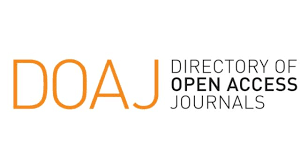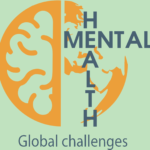Mental Health Advocacy in The Gambia, West Africa
DOI:
https://doi.org/10.56508/mhgcj.v6i1.174Keywords:
Mental illness, mental health, The Gambia, Africa, StigmaAbstract
Introduction: To promote mental health globally, including low-and middle-income countries, research and advocacy are essential. The Republic of The Gambia is one of the smallest countries in the world and is the focus of this research.
Purpose: This study examines social and cultural aspects of access to mental health treatment in The Gambia, West Africa.
Methodology: The population of focus consisted of adults over 18 living in The Gambia. The methodological approach was a qualitative phenomenological study involving semi-structured interviews conducted via Zoom, by a researcher from The Gambia.
Results: Data were collected from 17 participants living in The Gambia at the time of the study. A team of analysts with diverse backgrounds evaluated transcripts and identified five themes highlighting social and cultural conceptualizations of mental health and mental illness, sociocultural determinants of health, interventions, barriers to care, and legal frameworks to support mental health change.
Conclusions: The findings from this study are significant for mental health providers who seek to understand different perceptions of mental health and mental illness and the associated stigma. Furthermore, this study suggests several opportunities for mental health advocacy in The Gambia
References
Abdullah, T., & Brown, T. L. (2011). Mental illness stigma and ethnocultural beliefs, values, and norms: An integrative review. Clinical Psychology Review, 31, 934–948. https://doi.org/10.1016/j.cpr.2011.05.003 DOI: https://doi.org/10.1016/j.cpr.2011.05.003
Akinsulure-Smith, A. M., & Conteh, J. A. (2018). The emergence of counseling in Sierra Leone. Journal of Counseling & Development, 96(3), 327–334. https://doi.org/10.1002/jcad.12206 DOI: https://doi.org/10.1002/jcad.12206
American Counseling Association. (2014). 2014 ACA code of ethics. https://www.counseling.org/Resources/aca-code-of-ethics.pdf DOI: https://doi.org/10.1002/9781119221548.ch16
Amuyunzu-Nyamongo, M. (2013). The social and cultural aspects of mental health in African societies. In Commonwealth health partnerships (pp. 59–63). Commonwealth Network.
Babalola, E., Noel, P., & White, R. (2017). The biopsychosocial approach and global mental health: Synergies and opportunities. Indian Journal of Social Psychiatry, 33(4), 291–296. https://doi.org/10.4103/ijsp.ijsp_13_17 DOI: https://doi.org/10.4103/ijsp.ijsp_13_17
Barrow, L. F. M. (2016). Factors that influence access to mental health care service: The perspective of service users and the community in western 2 health region of the Gambia [Master’s thesis, University of Oslo]. University of Oslo Library. https://www.duo.uio.no/handle/10852/53237
Barrow, L. F. M., & Faerden, A. (2022). Barriers to accessing mental health services in The Gambia: Patients’/family members’ perspectives. BJPsych International, 19(2), 38–41. https://doi.org/10.1192/bji.2021.26 DOI: https://doi.org/10.1192/bji.2021.26
Becker, A. E., & Kleinman, A. (2013). Mental health and the global agenda. New England Journal of Medicine, 369(1), 66–73. https://doi.org/10.1056/NEJMra1110827 DOI: https://doi.org/10.1056/NEJMra1110827
Bharti, A., Singh, H., Singh, D., & Kumar, V. (2021). Behavior of general population toward mentally ill persons in digital India: Where are we? Industrial Psychiatry Journal, 30(1), 106–112. https://doi.org/10.4103/ipj.ipj_194_20 DOI: https://doi.org/10.4103/ipj.ipj_194_20
Bronfenbrenner, U. (1977). Toward an experimental ecology of human development. American Psychologist, 32(7), 513–531. https://psycnet.apa.org/doi/10.1037/0003-066X.32.7.513 DOI: https://doi.org/10.1037/0003-066X.32.7.513
Coleman, R., Loppy, L., & Walraven, G. (2002). The treatment gap and primary health care for people with epilepsy in rural Gambia. Bulletin of the World Health Organization, 80(5), 378–383. https://apps.who.int/iris/handle/10665/268768
Cosgrove, L., Morrill, Z., Karter, J. M., Valdes, E., & Cheng, C. (2021). The cultural politics of mental illness: Toward a rights-based approach to global mental health. Community Mental Health Journal, 57, 3–9. https://doi.org/10.1007/s10597-020-00720-6 DOI: https://doi.org/10.1007/s10597-020-00720-6
Crawford, M. (2020). Ecological systems theory: Exploring the development of the theoretical framework as conceived by Bronfenbrenner. Journal of Public Health Issue Practice, 4(2), Article 170. https://doi.org/10.33790/jphip1100170 DOI: https://doi.org/10.33790/jphip1100170
Creswell, J. W. (1998). Qualitative inquiry and research design: Choosing among five traditions. Sage.
Engel, G. L. (1977). The need for a new medical model: A challenge for biomedicine. Science, 196(4286), 129–136. https://doi.org/10.1126/science.847460 DOI: https://doi.org/10.1126/science.847460
Evans-Lacko, S., Mojtabi, E. B. R., Thornicroft, M. G. (2012). Association between public views of mental illness and self-stigma among individuals with mental illness in 14 European countries. Psychology Medicine, 42(8), 1741–1752. https://doi.org/10.1017/s0033291711002558 DOI: https://doi.org/10.1017/S0033291711002558
Firdos, S., Amanullah, M., & Mobarki, A. O. (2021). Labeled as mentally ill: Community perspective toward mental illness in Al Ahsa, Saudi Arabia. Cureus, 13(12), Article e20127. https://doi.org/10.7759/cureus.20127 DOI: https://doi.org/10.7759/cureus.20127
Galvin, M. (2021). Examining mental health in northern Haiti (Order No. 28414767) [Doctoral dissertation, Washington University in St. Louis]. ProQuest Dissertations & Theses Global.
Gambia Bureau of Statistics. (2013). Gambia population and housing census 2013 provisional report. https://www.gbosdata.org/downloads/census-2013-8
Global Burden of Disease Collaborative Network. (2018). Global burden of disease study 2017 (GBD 2017) Reference life table. Institute for Health Metrics and Evaluation (IHME). http://ghdx.healthdata.org/gbd-results-tool
Goffman, E. (1963). Stigma: Notes on the management of spoiled identity. Prentice-Hall.
Granello, D. H., & Gibbs, T. A. (2016). The power of language and labels: "The Mentally Ill" versus "People with Mental Illnesses". Journal of Counseling and Development, 94(1), 31–40. http://doi.org/10.1002/jcad.12059 DOI: https://doi.org/10.1002/jcad.12059
Hohenshil, T. H., Amundson, N. E., & Niles, S. G. (2015). Counseling around the world: An international handbook. American Counseling Association. DOI: https://doi.org/10.1002/9781119222736
Krah, E., de Kruijf, J., & Ragno, R. (2018). Integrating traditional healers into the health care system: Challenges and opportunities in rural Northern Ghana. Journal of Community Health, 43, 157–163. https://doi.org/10.1007/s10900-017-0398-4 DOI: https://doi.org/10.1007/s10900-017-0398-4
Kretzschmar, I., Nyan, O., Mendy, A. M. & Janneh, B. (2012). Mental health in the Republic of The Gambia. International Psychiatry (9)2, 38-40. https://doi.org/10.1192/S1749367600003076 DOI: https://doi.org/10.1192/S1749367600003076
Kutcher, S. Wei, Y., Gilberds, H., Ubuguyu, O., Njau, T., Brown, A., Sabuni, N., Magimba, A., & Perkins, K. (2016). A school mental health literacy curriculum resource training approach: Effects on Tanzanian teachers’ mental health knowledge stigma and help-seeking efficacy. Journal of Mental Health Systems, 10(50), 1–9. DOI: https://doi.org/10.1186/s13033-016-0082-6
Lund, C., De Silva, M., Plagerson, S., Cooper, S. Chisholm, D., Das, J., Knapp, M., & Patel, V. (2011). Poverty and mental disorders: Breaking the cycle in low-income and middle-income countries. Lancet, 378(9801), 1502–1514. DOI: https://doi.org/10.1016/S0140-6736(11)60754-X
Mental Health Leadership and Advocacy Program. (2012). Gambia mental health report 2012. Gambia Government Press.
Monteiro, N. M. (2015). Addressing mental illness in Africa: Global health challenges and local opportunities. Community Psychology in Global Perspective, 1(2), 78–95. http://dx.doi.org/10.1285/i24212113v1i2p78
Moustakas, C. (1994). Phenomenological research methods. Sage. DOI: https://doi.org/10.4135/9781412995658
Patel, V., & Prince, M. (2010). Global mental health: A new global health field comes of age. JAMA, 303(19), 1976–1977. https://doi.org/10.1001/jama.2010.616 DOI: https://doi.org/10.1001/jama.2010.616
Ratts, M. J., Singh, A. A., Nassar?McMillan, S., Butler, S. K., & McCullough, J. R. (2016).
Multicultural and social justice counseling competencies: Guidelines for the counseling
profession. Journal of Multicultural Counseling and Development, 44(1), 28–48. https://doi.org/10.1002/jmcd.12035 DOI: https://doi.org/10.1002/jmcd.12035
Sue, D. W. (1994). Asian-American mental health and help-seeking behavior: Comment on Solberg et al. (1994), Tata and Leong (1994), and Lin (1994). Journal of Counseling Psychology, 41(3), 292–295. https://psycnet.apa.org/doi/10.1037/0022-0167.41.3.292 DOI: https://doi.org/10.1037/0022-0167.41.3.292
Summergrad, P. (2016). Investing in global mental health: The time for action is now. Lancet Psychiatry, 3(5), 390–391. http://doi.org/10.1016/S2215-0366(16)30031-1 DOI: https://doi.org/10.1016/S2215-0366(16)30031-1
Tervalon, M. & Murray-García, J. (1998). Cultural humility versus cultural competence: A critical distinction in defining physician training outcomes in multicultural edcuation. Journal of Health Care for the Poor and Underserved, 9(2), 117–125. DOI: https://doi.org/10.1353/hpu.2010.0233
Ward, C. C., & Reuter, T. (2011). Strength-centered counseling: Integrating postmodern approaches and skills with practice. https://aura.antioch.edu/facbooks/18 DOI: https://doi.org/10.4135/9781452275208
Wolf, P., & Holmes, K. J. (2011). Linguistic relativity. Wiley Interdisciplinary Reviews, 2(3), 253–265. https://doi.org/10.1002/wcs.104 DOI: https://doi.org/10.1002/wcs.104
World Bank Group. (2022). The world bank in The Gambia. https://www.worldbank.org/en/country/gambia/overview
World Health Organization. (1978). Declaration of Alma-Ata. https://www.who.int/publications/i/item/WHO-EURO-1978-3938-43697-61471#:~:text=The%20Declaration%20of%20Alma-Ata%20was%20endorsed%20at%20the,Primary%20Health%20Care%2C%20Alma-Ata%2C%20USSR%2C%206-12%20September%201978
World Health Organization. (2012). Comprehensive mental health action plan 2013-2030. https://www.who.int/initiatives/mental-health-action-plan-2013-2030
World Health Organization. (2014). Social determinants of mental health. http://apps.who.int/iris/bitstream/10665/112828/1/9789241506809
World Health Organization. (2018). Mental health ATLAS 2017. https://www.who.int/publications/i/item/9789241514019
Zhu, P., Luke, M., & Bellini, J. L. (2021). A grounded theory analysis of cultural humility in counseling and counselor education. Counselor Preparation, 60(1), 73–89. https://doi.org/10.1002/ceas.12197 DOI: https://doi.org/10.1002/ceas.12197

Published
How to Cite
Issue
Section
License
Copyright (c) 2023 Stephanie Thorson-Olesen, Safiya Njai

This work is licensed under a Creative Commons Attribution-NonCommercial 4.0 International License.








 E-mail us: viktor.vus@mhgcj.org
E-mail us: viktor.vus@mhgcj.org 